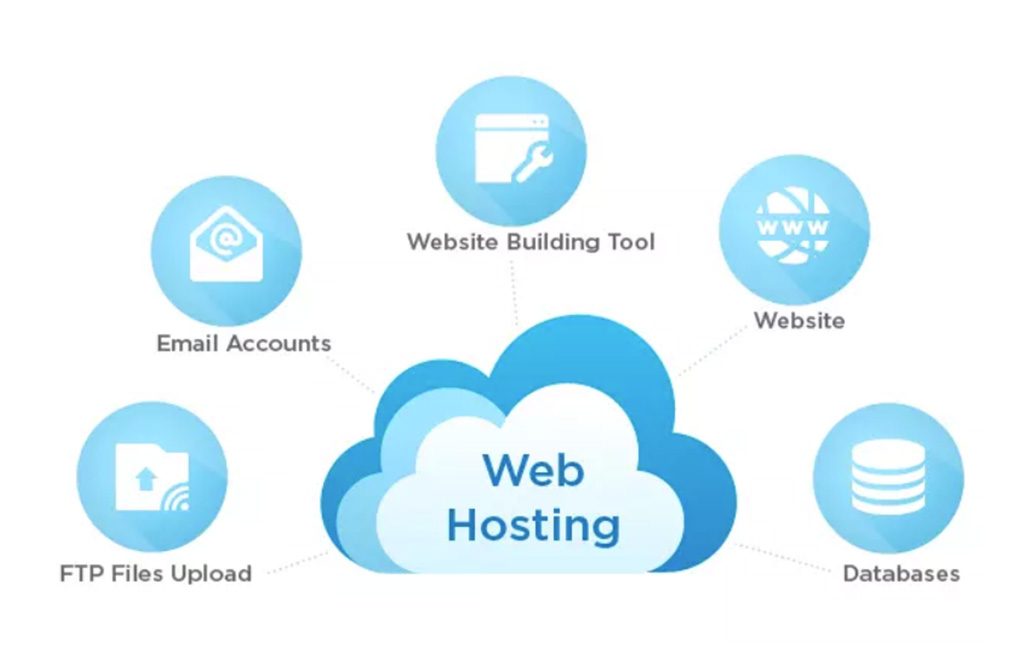A quick web search for “hosting solutions” will show you a list of hundreds of companies and seemingly endless hot deals. Between resellers, wholesalers, and countless companies offering free hosting services, it seems like everyone is getting into this business.
If you didn’t know any better, you might think that whom you choose to host your website doesn’t matter. Each provider claims that they’re faster, bigger, and better than others. They all seem to have the same technology and promises. Just choose the cheapest one that offers enough storage for your current needs, and you’re good to go, right?
Wrong!
Web Host Considerations
Picking the first provider that says they’ll give you tons of features for the price of a cup of coffee could end up costing you much more in terms of productivity and reputation. So, what goes into choosing the best web hosting service?
First of all, you should consider what you need before deciding what will work best for your purposes. There are several types of hosting solutions, but not all of them are created equally. Does the same platform that makes a WordPress portfolio feel at home have the power to host a busy interactive website for an enterprise-level corporation?

Ask yourself:
– What kind of website am I launching?
– What’s my expected traffic and growth?
– What kind of security and privacy do I need?
– Will I need add-on domains at some point?
– What are my business email requirements? Does the hosting company provide only one email address or one per domain?
– Does my website have special features or specific requirements?
Taking your answers to those questions into consideration, your options for web hosting are as follows:
Shared Hosting: As the name implies, you’ll share space with other people on the same server. This is the cheapest way to go, and you don’t have to worry about maintenance or other housekeeping duties. However, you have no control over the available resources or power. If another person on the shared server uses up the bandwidth or hogs other resources that reduce speed, your traffic will suffer.
Virtual Private Servers: When you choose a VPS, you’re basically renting a virtual computer that resides on a physical machine in another location. Each “resident” on the host computer is allotted space and resources that don’t interfere with the other tenants, unlike shared hosting. You can run your own OS and everything else as if you have a physical system.
Dedicated Servers: This is the priciest option, but it allows you complete control over everything. There are no limits except the physical capacity of the host machine, and you share no resources with anyone. Choose this option if you have a large company with its own IT department to handle security, maintenance, and upgrades.

All three of the options are available as a cloud computing service as well.
What else should you look into before you sign up with a web hosting service? Here is our top 10 list.
1. Uptime
This is the amount of time that the server – thus, your website – is up and operational. When you realize how much every minute of downtime costs the average business, it’s probably one of the most important elements to consider when looking for a hosting platform. Web hosting services express uptime as a percentage. That means if your host promises an uptime of 99.95 percent, you need to account for approximately 21.92 minutes per month of downtime.
No one can guarantee 100 percent uptime. If your web hosting service does promise a specific level of uptime, make sure that it’s spelled out in your Service Level Agreement (SLA). They should also explicitly state what remedy they offer if they don’t meet that guarantee. However, any company that can’t do either of those things is one you don’t want to bother with.
Note that those who do promise a certain level of service and back it with refunds or hosting credits will cost a little more for their service. Balance what level of downtime you can live with versus the cost of hosting your website.
Check out Hosting Canada’s best web hosts for uptimes/downtimes tracked 24/7 to see what is really happening with some of the top hosting providers and their promises of 99.9% uptime.
2. Security
Security is probably the second most important element when choosing a host to keep your site safe. You should ask whether your plan includes backups, how often, and if there’s an additional charge. Also, check the web hosting to see if you’re able to perform backups from your control panel manually, and how easy it is to restore your system should you experience a crash or data loss.
3. Bandwidth and Speed
You need enough bandwidth to make sure that traffic can be accommodated at your present capacity, as you scale up, and during any unexpected traffic spikes. What is a lag time like with your type of website? Are your visitors going to have to contend with slow page loads because the host server is too far from your location?
Do they have multiple servers in various regions or countries? It’s not a bad idea to consider subscribing to a content delivery network (CDN) to speed up your site load time even more.
4. Support
You should never have to chase down help desk support if you’re paying for a premium service. Their team should be reachable 24/7/365 through a range of different venues. Bonus points go to services that have online chat support in real time.
5. Technology
Make sure that your host embraces the technology you need to power your website. Does the web hosting service you’re considering support your CMS? At a minimum, it should be able to work with scripts for PHP, MySQL, .htaccess, Perl, and crontabs. You should also find out how often these are updated.
6. Price
There are some really good deals out there, but web hosting can be hit or miss in terms of quality. Measure any service that’s on your shortlist against other criteria before going for something based solely on price. Be aware that most prices are listed in terms of rates per month, but to get that rate requires paying for a year in advance.
Try a few that offer a free trial or a money back guarantee, but never go for a free service. They will make up for what they’re losing on subscriptions with ads, third-party sales of your information, and all manner of annoying or borderline illegal shenanigans.
7. Scalability
The worst thing that could happen is to find yourself stuck with a platform that can’t handle business expansion. You should choose a plan with the future in mind, and make sure that there are enough resources to keep your traffic flowing smoothly with no interruptions or unplanned downtime no matter how fast or big you grow.
8. Software and Hardware
What kind of software, apps, and plugins are you going to need to run your website? Is their server compatible with your operating system? What about firewalls, DNS, and virus protection? How often are their servers and infrastructure updated, and how many hours of planned downtime will you need to prepare for?
9. Service Level Agreements (SLA)
Any company you work with should be fully transparent about its rates, fees, and availability of resources. Everything should be spelled out explicitly, including the type of websites that are allowed on their hosting platforms, and they shouldn’t hesitate to provide you with a reasonable explanation for anything that isn’t stated in your SLA and terms of service agreements.
10. Reputation
Finally, what kind of reputation does your web hosting service have? Are the reviews good, and are they located on unbiased websites? What do other customers think of the service, and how long has the company been in the hosting business? This is an important distinction, as many companies that provide other services offer hosting solutions as a sideline or bonus-with-membership type deal.
Final Thoughts
The technology that supports your website is just as important as any other element that goes into establishing a successful and lasting online presence. In order to get a really good price deal on quality hosting, you’re probably going to have to commit to at least one year and maybe two or three. Before you sign on with any provider, make sure that their services, security, and technology will meet your needs now and in the future.






